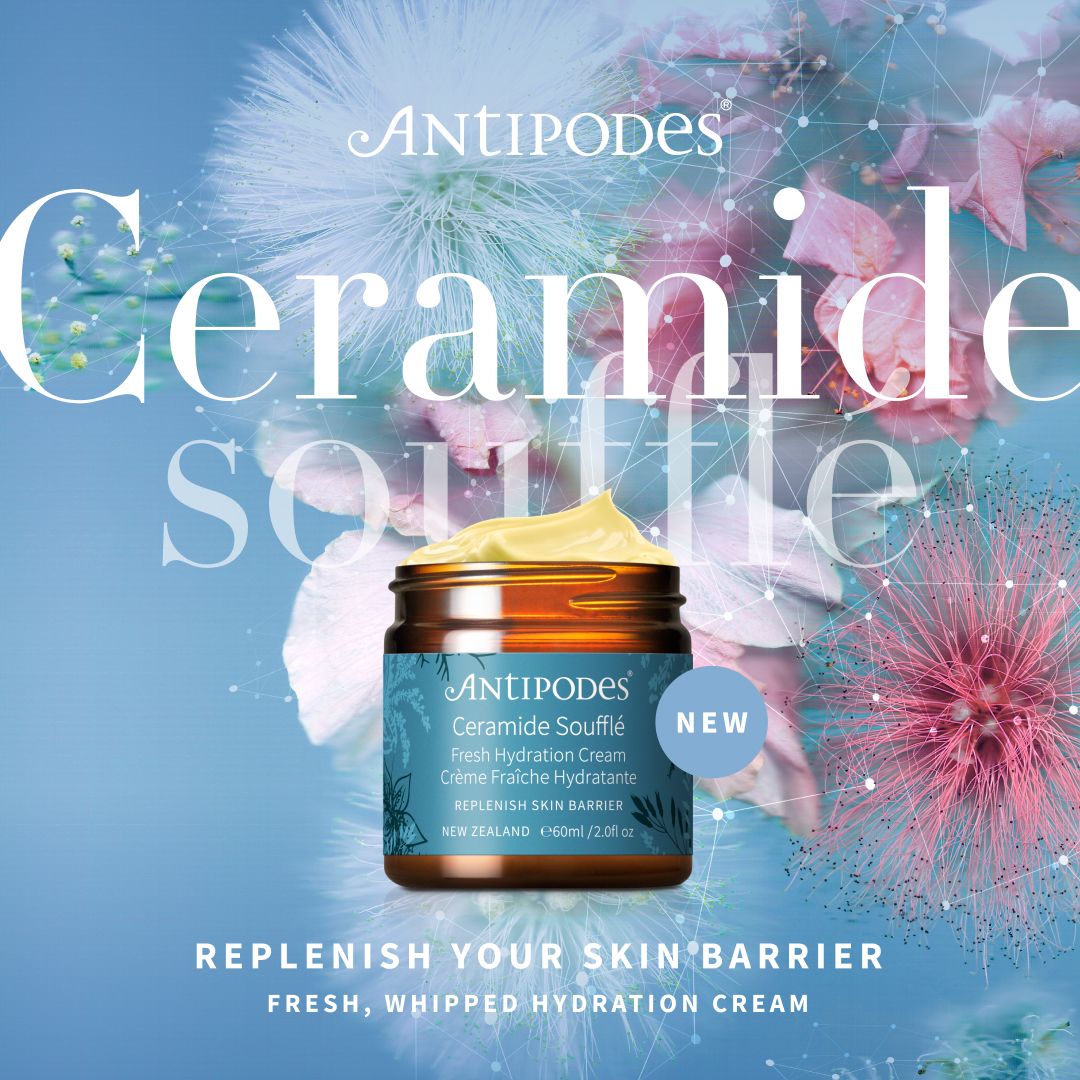
What Is Bakuchiol, The Natural Alternative To Retinol?
Hard to say; easy to love. Beauty experts are calling "bakuchiol” (pronounced bah-koo-chee-ol) a natural retinol alternative – which means this quiet achiever is one for your beauty bag.
What is bakuchiol?
Bakuchiol is extracted from the leaves and seeds of the babchi plant (psoralea corylifolia) which grows on the Indian subcontinent in countries such as India and Sri Lanka. Used in traditional Chinese and Ayurvedic healing remedies for centuries, the herb has long been known for its ability to help heal, calm, and soothe skin thanks to its anti-inflammatory and antibacterial properties.
Although bakuchiol is by no means a new ingredient in the skincare world, it’s recently exploded in popularity because of evidence linking bakuchiol benefits to those of skincare golden child, retinol.
Bakuchiol versus retinol: what’s the difference?
At a molecular level, bakuchiol bears very little resemblance to retinol. So why are these ingredients so frequently compared?
The lowdown on retinol
Retinol is also known as Vitamin A – an essential nutrient that optimises the function of our skin, eyes, immune system, and reproductive system. Usually included in skincare in its synthetic form, retinol’s potent benefits have led to its status as the gold standard of anti-aging. Retinol has been found to help boost collagen production; strengthen and clear the skin; and reduce discolouration for a more even skin tone.
The downside
From dizzying heights to the fall. Retinol’s benefits come with consequences, as retinol is known to irritate the skin. Redness, dryness, stinging, peeling, flakiness, and sun sensitivity are all side effects of retinol, so this ingredient is generally one to be avoided by those with sensitive skin or anyone who is pregnant or breastfeeding. Users of retinol are advised to slowly increase the frequency and amount so they can build up their tolerance over time. Some forms of retinol are derived from animal products, making them unsuitable for anyone living a vegan lifestyle.
Enter Nature’s alternative
So far, so disappointing – but that’s why the beauty world has welcomed bakuchiol skincare with open arms. It’s a natural, vegan retinol alternative. Best of all, unlike retinol there is no evidence to suggest that bakuchiol degrades when exposed to the sun, and it hasn’t been shown to cause irritation. With all the benefits and potentially none of the side effects, it’s a win-win for skin.
Vitamin C can be synthetic (made in a lab) or natural (sourced from nature). Natural vitamin C is the most bioavailable form of vitamin C. Unlike synthetic sources, it is more likely to contain the full range of phytonutrients - such as bioflavonoids and enzymes - which help the body use the nutrient the way nature intended. To be stable for use in skincare products, synthetic vitamin C is formulated with a low pH level, which can cause irritation – and some forms of synthetic vitamin C, such as ascorbyl palmitate, can even be toxic. Products with natural forms of vitamin C are more likely to be gentle on skin.

Three bakuchiol benefits
It keeps fine lines at bay
Just like retinol, bakuchiol interacts with the retinoid receptors responsible for the synthesis of collagen – the protein that keeps your skin plumped and free from wrinkles. In other words, bakuchiol ‘instructs’ your skin to make collagen. Thanks to its regenerative properties, it helps stimulate cell turnover, helping to re-densify the skin and refine its texture. The result? Smooth, glowing skin.
It defends against damage
Bakuchiol’s powerful antioxidant properties help neutralise the free radical damage that can break down skin, leading to a complexion that's dull or sagging. Its antibacterial and anti-inflammatory properties make it an ideal ingredient for blemishes, helping to rid the skin of blemish-causing bacteria and reduce swelling caused by acne.
It brightens skin
By defending against the harmful damage caused by pollutants, bakuchiol benefits the appearance of skin. It helps to reduce discolouration and even out the skin tone by minimising the appearance of dark spots, areas of hyperpigmentation, and dark circles.

How to use bakuchiol skincare: your skin-smoothing routine
Smooth, firm, and brighten skin in three steps with these natural skincare products, including a vitamin C bakuchiol serum.
Exfoliate with Halo Skin-Brightening Facial Mud Mask
Out with the old; in with the fresh and new. Geothermal mud from New Zealand’s volcanic plateau binds to oil and impurities and carries them away, while jojoba beads help shift dull and deadened skin for a smooth, clear finish. Apply thick layers after cleansing and leave on for up to 15 minutes before rinsing.
Brighten with Glow Vitamin C Brightening Serum
Your super-charged bakuchiol serum. “Nature’s retinol” helps smooth and refine skin texture, while vitamin C from Kakadu plum helps brighten, plump and protect. Massage three to four drops into your face, neck and décolletage every morning to achieve a luminous complexion.
Soothe with Culture Probiotic Night Recovery Water Cream
Night is a time for skin recovery, which is why this probiotic moisturiser is the perfect salve. It contains Kalibiome AGE Probiotic – a non-live “good bacteria” that has been shown to help reduce redness and roughness in skin. Apply generously.
Recommended products
Detoxify and exfoliate to reveal brighter skin with this mineral-rich geothermal mud mask.
Target dull skin
Target the appearance of lines and wrinkles and smooth your complexion with this award-winning oil-based serum.
Target fine lines & wrinkles
Target pigmentation and dullness with this brightening vitamin C serum to reveal a radiant complexion.
Target pigmentation & dull skin
Restore calm to stressed or blemished skin and balance your skin’s microbiome with this probiotic water cream.
Target redness & blemishes








